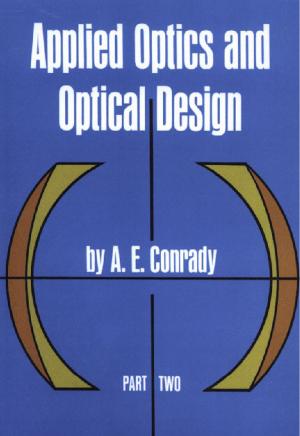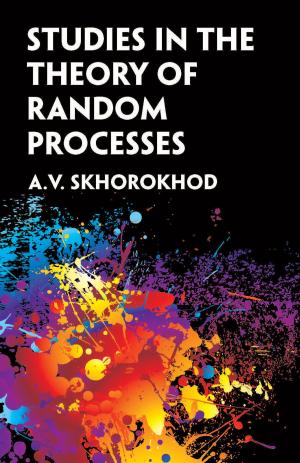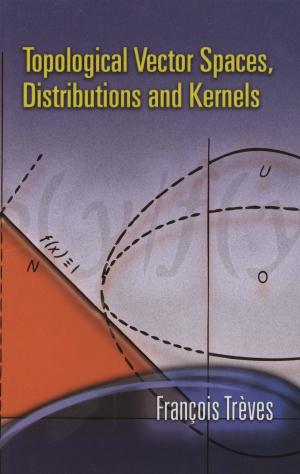| Author: | John Mandel | ISBN: | 9780486139593 |
| Publisher: | Dover Publications | Publication: | June 8, 2012 |
| Imprint: | Dover Publications | Language: | English |
| Author: | John Mandel |
| ISBN: | 9780486139593 |
| Publisher: | Dover Publications |
| Publication: | June 8, 2012 |
| Imprint: | Dover Publications |
| Language: | English |
The increasing importance in laboratory situations of minutely precise measurements presents the chemist and physicist with numerous problems in data analysis. National Bureau of Standards statistics consultant John Mandel here draws a clear and fascinating blueprint for a systematic science of statistical analysis — geared to the particular needs of the physical scientist, with approach and examples aimed specifically at the statistical problems he is likely to confront.
The first third of The Statistical Analysis of Experimental Data comprises a thorough grounding in the fundamental mathematical definitions, concepts, and facts underlying modern statistical theory — math knowledge beyond basic algebra, calculus, and analytic geometry is not required. Remaining chapters deal with statistics as an interpretative tool that can enable the laboratory researcher to determine his most effective methodology. You'll find lucid, concise coverage of over 130 topics, including elements of measurement; nature of statistical analysis; design/analysis of experiments; statistics as diagnostic tool; precision and accuracy; testing statistical models; between-within classifications; two-way classifications; sampling (principles, objectives, methods); fitting of non-linear models; measurement of processes; components of variance; nested designs; the sensitivity ratio, and much more.
Also included are many examples, each worked in step-by-step fashion; nearly 200 helpful figures and tables; and concluding chapter summaries followed by references for further study.
Mandel argues that, when backed by an understanding of its theoretic framework, statistics offers researchers "not only a powerful tool for the interpretation of experiments but also a task of real intellectual gratification." The Statistical Analysis of Experimental Data provides the physical scientist with the explanations and models he requires to impress this invaluable tool into service.
The increasing importance in laboratory situations of minutely precise measurements presents the chemist and physicist with numerous problems in data analysis. National Bureau of Standards statistics consultant John Mandel here draws a clear and fascinating blueprint for a systematic science of statistical analysis — geared to the particular needs of the physical scientist, with approach and examples aimed specifically at the statistical problems he is likely to confront.
The first third of The Statistical Analysis of Experimental Data comprises a thorough grounding in the fundamental mathematical definitions, concepts, and facts underlying modern statistical theory — math knowledge beyond basic algebra, calculus, and analytic geometry is not required. Remaining chapters deal with statistics as an interpretative tool that can enable the laboratory researcher to determine his most effective methodology. You'll find lucid, concise coverage of over 130 topics, including elements of measurement; nature of statistical analysis; design/analysis of experiments; statistics as diagnostic tool; precision and accuracy; testing statistical models; between-within classifications; two-way classifications; sampling (principles, objectives, methods); fitting of non-linear models; measurement of processes; components of variance; nested designs; the sensitivity ratio, and much more.
Also included are many examples, each worked in step-by-step fashion; nearly 200 helpful figures and tables; and concluding chapter summaries followed by references for further study.
Mandel argues that, when backed by an understanding of its theoretic framework, statistics offers researchers "not only a powerful tool for the interpretation of experiments but also a task of real intellectual gratification." The Statistical Analysis of Experimental Data provides the physical scientist with the explanations and models he requires to impress this invaluable tool into service.















